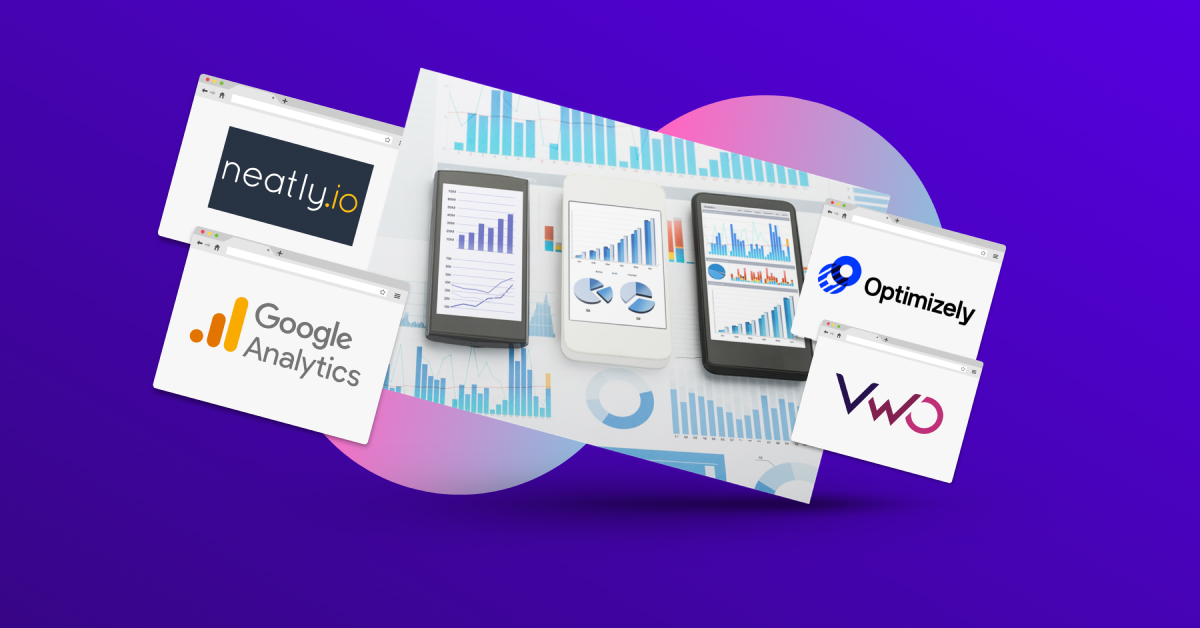Did you know that in the US alone, ecommerce sales are projected to hit $875.2billion in 2022 and 1.3 trillion in 2025?
Wow! That is HUGE.
And that only shows that ecommerce is one of the most profitable ways of doing business nowadays.
Yet, I don't know about you but... starting and growing an ecommerce business is not easy. Especially when you are competing against millions of other ecommerce businesses.
Thus, you need to make use of some of the best ecommerce tools to maximize your potential. You can automate and simplify a wide range of business tasks using ecommerce tools.
You can use these tools to do everything you need for your online store. And you can make the most of your time and increase efficiency.
As your ecommerce store grows and traffic scales into the thousands or even millions of monthly visitors, your technical foundation becomes just as important as your marketing strategy. Many fast-growing brands eventually outgrow shared hosting or legacy systems and need professional cloud migration services to move their infrastructure to scalable, secure cloud environments like AWS, Azure, or Google Cloud.
A well-executed migration ensures faster load times, better uptime during peak sales events, stronger data protection, and seamless integrations with payment gateways, inventory systems, and marketing automation tools — all of which directly impact conversion rates and customer experience.
Trying to figure out which ecommerce tools to use?
Stay with me. Because I'm about to give you a roundup of...
The Best Tools You Can Use to Run Your Ecommerce Business!
As a starting point, here are a few categories I'll use to organize this list of tools...
- Ecommerce Website tools
- Marketing tools
- Business tools
- Research tools
- Social media tools
- Analytics tools
Ready? Let's roll!
Starting from the first category...
✅Ecommerce Website Tools

These tools will help you in getting your online store up and running and help you manage it. My top picks for this category are:
Shopify
Shopify is one of the best ecommerce tools available out there. I'm sure you know it. But what makes it so popular?
The platform lets you create an ecommerce website from scratch in no time. You can create your own website and use its shopping cart software all in one program. And it can be set up and used by anyone with any level of technical skills.
Aside from being a fast and reliable website, the platform takes care of everything... from building websites to managing campaigns on Facebook and Google.
Other features that make them well-loved by ecommerce business owners include:
- A fully hosted package that takes care of every aspect of running the application... from backups to updates.
Website builder with drag-and-drop functionality.
You may check out the best AI eCommerce website builders of 2024 to learn more.
- Integrated dashboard for managing orders, shipping, and payments
- Integrated marketing tools for running Facebook and Google campaigns
- Integration with a wide range of payment gateways
- Lets you sell everything from your ecommerce store to social media to online marketplaces
- The tool is highly affordable and easy to use.
#2 on my list...
WooCommerce
It's one of the best free ecommerce tools available. It's specifically designed for WordPress users... who want to add ecommerce functionality to their sites.
One of the most attractive things about WooCommerce is how easy it is to use. And it easily integrates if you have a WordPress site.
And while you do need to buy certain features, the free version also works well.
A list of the best ecommerce business tools wouldn't be complete without...
Wix
If you have a limited budget, Wix is a viable option.
With many features that rival WooCommerce and Shopify, it is a top ecommerce website builder.
But while it's easy to use, if your store grows quickly it can prove a little difficult to scale.
So the next option...
BigCommerce
BigCommerce offers endless opportunities to build, innovate, and grow your online store. Their features?
- Drag-and-drop interface
- Allow for flexibility and innovation with open SaaS platforms
- Integrate easily with third-party applications
- conversion features like coupons and digital wallets
- High-quality uptime and server response delivered by Google Cloud Platform
- Rich analytics to gain valuable insight into customers
- Simple to use
- secure, reliable, and flexible platform
Let's go to the next category...
✅Marketing Tools

The number of ecommerce marketing tools is staggering. It ranges from social media automation to affiliate marketing to loyalty management.
You need a tool that lets you track every marketing aspect of your business. You need to track campaign performance. You need a tool that can manage tasks such as social, email, and content creation easier. And you need a tool that lets you segment and track customers... and is inexpensive.
It's not easy... but several of the tools listed below are suitable.
PredictaMail
PredictaMail is an easy-to-use email marketing platform specifically built for ecommerce brands. It focuses on helping store owners create beautiful campaigns and automated workflows without the technical complexity.
Whether you are just starting or looking to scale your communication, PredictaMail allows you to build professional emails using a 100% drag-and-drop editor. It is particularly effective for merchants who want to sync their store data—like customers, orders, and products—to trigger automated flows such as welcome sequences, abandoned cart reminders, and win-back campaigns.
Key Features:
- Drag-and-Drop Editor: Create fully branded, mobile-responsive emails in minutes without writing a single line of code.
- Ready-Made Templates: Access a library of ecommerce-ready templates for product launches, sales, and newsletters.
- Automated Workflows: Easily set up triggers for abandoned carts, follow-ups, and customer engagement to grow revenue on autopilot.
- Real-Time Analytics: Track opens, clicks, conversions, and actual revenue to see exactly how your campaigns are performing.
Klaviyo
Klaviyo is an ecommerce tool that handles everything from A/B testing to autoresponders. It is one of the most popular marketing automation tools out there.
You can use this if you're new to ecommerce. Or if you don't have the budget to hire a full-time digital marketer to help you draw traffic.
Klaviyo's API makes it easy to integrate with any app you like. You can also work with their many integrations. That includes CRMs and top ecommerce platforms.
Next on the marketing tools category...
Omnisend
In many cases, when it comes to ecommerce email marketing, generalized email marketing tools won't be effective.
Besides, why limit yourself to fewer features... when there are email marketing platforms designed for ecommerce?
Omnisend comes into play here.
Omnisend provides ecommerce-focused workflow and email templates. It also enables you to pull products from your online store and set up discount codes in a matter of seconds. So, it responds to the needs of anyone running an online business
You can also benefit from Omnisend's customizable marketing automation templates... and a visual drag-and-drop email builder.
You can implement email marketing campaigns right away with Omnisend.
Online sellers love the next tool... let's see why ?
Hubspot
Hubspot is one of the most popular marketing automation tools out there.
Marketing automation is one of the tools HubSpot offers. It is described as "inbound marketing software" which means it's an all-in-one tool.
It provides businesses with an all-in-one marketing and sales platform that enables them to grow without compromising the quality of their inbound approach.
This all-in-one approach can be really convenient. It is built to make your ecommerce experience as simple and flexible as possible. HubSpot for eCommerce is a one-stop destination for all your ecommerce needs, from automation to customer support.
It has integrations and tools that can help eCommerce businesses run their businesses efficiently.
And what's more? Using the HubSpot CRM system, businesses can boost their sales and increase leads. Through the right and effective practices, HubSpot CRM software helps you take your business in the right direction... regardless of whether you are working on marketing initiatives, sales efforts, or customer service.
Next, we have...
ActiveCampaign
ActiveCampaign has a good reputation for updating and changing based on user feedback.
Despite the poor user interface and the sheer volume of data available on your dashboard... they update and provide enhancements.
There is a free trial, and paid plans are between $9-$415/month. This depends on the number of users and contacts you have.
Active Campaign allows you to run a single campaign or base your email marketing on them. And their robust analytics will help you maximize the results.
But, you will have to pay. If you want to check how your email campaign can be viewed on different devices and browsers... the cost of these platform tests ranges from $5 for 5 tests to $60 for 100 tests.
And the last in this category...
EngageBay
EngageBay is a popular ecommerce platform. It combines CRM, marketing automation, helpdesk, and live chat into one platform.
You can use it to manage contacts, proposals, deals, sales, and appointments. You can also create email sequences landing pages and forms, and with EngageBay.
You may also use tools for managing customer service before, during, and after the sale. And Engagebay's help desk and live chat software can help you achieve this.
This tool is compatible with many popular apps, such as:
- Shopify
- Zapier
- BigCommerce
- DocuSign
- WooCommerce
- Stripe
- ReCaptcha
In the next category, I'm going to talk about...
✅Business Tools

These are important tools to manage your ecommerce store's operations, finances, and logistics. My list includes:
Monday
Monday is an excellent task manager. It is a great tool to manage projects, leads, processes, and content calendars.
You may find it a bit overwhelming to use at first. But you'll surely get the hang of it. It's a good idea to check out Monday.com alternatives to see if any of them fits the bill.
Next up...
Veeqo
Veeqo is an inventory management system that helps small businesses manage orders across multiple channels.
Here, you can stay on top of orders and prevent overselling. You can control just how much stock shows in each store... keeping your inventory levels accurate.
With over 40 integrations, you can pull inventory from all of your channels in real-time. It also updates all of your stores whenever you have a sale.
The next tool is one of my favorites...
Asana
Asana is a task management SaaS platform. It is being used by businesses and individuals for task assignments, scheduling, and tracking.
It's great for team collaboration because it's easy to use. Team conversations and discussion boards allow for clear communication from anywhere.
Within the platform, you can import files and team members are reminded of upcoming and recent deadlines.
The next category is important so keep reading...
✅Social Media Tools

Nowadays, ecommerce makes it easy to display your products on social media sites. There are also social media management tools to help you schedule your posts.
You need these tools in order to maintain visibility on social media. And improve your overall online presence.
You can publish posts at a specific time no matter where you are or what you do. They will auto-upload for you, giving you more time to focus on what you love to do best.
Some of these tools are:
Buffer
This is one of my favorite social media management tools. It's nice that Buffer's free plan includes not only the basic social media features other free tools offer. But they also have a landing page builder. And it integrates well with other tools like Bitly.
Plus, the paid version is only five dollars a month, so I'm all for it! It's the most affordable content calendar and social media management tool in one.
Also includes certain ecommerce essentials, such as queues, reporting features, and Shopify integration.
What's more? You can view your sales and determine which products sell the best in social media.
So why not?
On to the next social media management tool...
Hootsuite
Using Hootsuite you can manage all of your social media channels in one place.
You can schedule posts in advance. So you can get all of your social media content for the weeks and months ahead ready at once. Or you can get your post to publish even while you sleep.
And in one dashboard, you can manage mentions of your brand and responses as well. The platform also allows you to promote your social media posts through Hootsuite now.
Its advanced reporting tools also let you see which social media campaigns are most effective. So you can calculate the ROI of those campaigns.
It's definitely a great ecommerce tool to use.
The next tool is vital in social media...
Canva
Any ecommerce business should take advantage of Canva, even if it's just the free version.
Canva is one of the best ecommerce tools to use with your social media. As you know, visuals are essential for engaging your audience on social media.
And with Canva, you'll find all sorts of graphic design tools and templates. It can be used to create marketing posters, business cards, ebooks, and more.
You can come up with motivational quotes for your graphics. Or you can visualize complex data with graphs. You can also design engaging infographics. And let Canva help you wow your audience.
And another breakthrough in social media, let me introduce...
TikTok Video Scheduler
Now you can upload and schedule your videos easily with TikTok's own management tool!
Many business owners have their social media managers use this as an ecommerce tool. It's easy to use. On TikTok's website, there is a button on the right-hand side that leads to the upload page. You can set up to 10 days in advance and forget about it. And go on with your life. ?
Good news... It's completely free!
Now we move on to the next category...
✅Research Tools

A successful ecommerce business is all about getting a competitive edge. And research is central to ecommerce business success.
When you have no idea who your competitors are and what products are in... you lose.
Ecommerce research tools will allow you to see who your competitors are. And discover opportunities in your niche. You can do product research and also improve the effectiveness of your site and campaigns.
These tools are typically affordable or offer free trials, so they are available to all businesses.
This is why BuzzSumo is one of my favorite tools...
BuzzSumo
With BuzzSumo, you can see what's trending on social media based on topics people search.
After you have performed your search, you can analyze the results. You will then find out what makes them so appealing to the masses. And then you can also pull ideas for writing.
Yet BuzzSumo is going beyond just content research and viral posts. Today, BuzzSumo offers a wide range of digital marketing tools like:
- Performing keyword research
- Tools for monitoring brands
- Content analysis
- Influencer search
- Topical social media feeds
- Crisis management
Next...
SEMRush
SEMRush offers insights into an ecommerce page's performance, top keywords in a niche, and its competitors.
With this research ecommerce tool, you can track more than 106 million keywords and more than 87 million domains.
A SEMRush audit can point out the strengths and weaknesses of your site or even your competitors' site. Also, they help you improve SEO and identify keywords as well as compare websites in your niche. It also analyzes the performance of advertising campaigns.
This will be a big help for your ecommerce business.
Now, let's move on to the third tool in this category...
Linkio
Linkio is a useful tool for marketers. The tool helps determine how to improve rankings through ecommerce link building. If you want to know what number of links to build or how your competition is ranking... Linkio is for you!
Also, the combination of Linkio APIs and crawlers lets you create a blueprint for link building. This provides answers to questions about the quantity and type of links to build.
You can track progress using a rank tracker and backlink monitoring module. And you can automate blogger outreach using an email module.
Now let's go to the last category...
✅Analytic Tools

An analytics tool uses data science to help you understand your customers' wants... and why they came to your store. Most importantly, you need these tools to know how you can attract more new customers.
Keeping track of these statistics is a necessity in ecommerce. Because to achieve ultimate success, you need to have... accurate picture of customer behavior and insights into your sales.
And of course... generation of reports, marketing processes, and website conversion optimization insights are vital. These should be available at all times.
The good news is, finding massive amounts of useful data is usually inexpensive, if not free. And You don't have to be a statistician to use these tools...
First, my ecommerce tools list is, of course, is so popular...
Google Analytics
I can't stress this enough. Google Analytics is a must-have for every ecommerce business.
Need I say more? It offers so much free information that helps you improve conversions. Whether on your PPC ads, or when you are optimizing your site and product descriptions. Or tracking your visitors' behavior.
Plus, Google offers free training to help you master Google Analytics.
Optimizely Analytics
The Optimizely Analytics Stat Engine is a powerful tool that applies sequential testing to evaluate performance.
A part of Optimizely's five ecommerce tools (their sixth is for TV), this is the backbone of the apps' analytics. Good thing, it offers a free trial.
VWO
VWO is Visual Website Optimizer. VWO's features go far beyond basic analytics. Heat maps and click maps are available in the tool to optimize conversions.
You can test, analyze, edit, and target campaigns using this tool. And it's easy to integrate with most ecommerce platforms.
And last on my best ecommerce tools list...
Neatly
This analytics tool offers a smooth and attractive user interface. It simplifies the process of organizing your days.
And enables you to track and set goals. You also receive insights into your marketing efforts. The neat dashboard also allows you to track all of your KPIs in one place.
This ecommerce tool integrates with more than 45 popular ecommerce apps. Just to name a few... Shopify, MailChimp, QuickBooks, PayPal, and (of course) Google Analytics... etc.
Neatly is free to use (with some restrictions - live chat support and onboarding will cost you).
Be aware of the fair use policy, which limits the number of users of the platform using the tool at one time.
Do you see? In today's competitive digital marketing environment... you must be intuitive, persistent, tech-savvy, or well-versed in social media.
So it will benefit you a lot if you use these tools I've mentioned...
Start Using These Tools To Run Your Online Business!
Use these tools in your ecommerce business in order to save time and work more efficiently. And don't be surprised... these will help your ecommerce sales too. Plus, you'll be able to focus on the most important aspects of your life while still managing your sanity.
And know what? Everything will fall into place if you use an ecommerce theme that has functional features and loads quickly.
This is possible with Debutify!
Debutify is an amazing ecommerce theme that will keep your ecommerce website in tip-top shape. It's also highly customizable, so you can showcase your brand more effectively.
And the best part? It has 50+ Add-Ons to help you maximize your profits and boost conversions.
So don't wait too long...
Try Debutify For Free And Keep Your Ecommerce Site Working At Its Best With Debutify... Today!
14-Day Free Trial. 1-Click Installation. No Credit Card Required.





